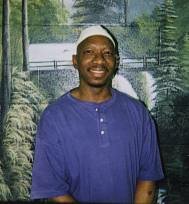What really separates the Tea Party from the Black Panther Party
Politics, US — By Crystal Hayes on May 26, 2010 at 08:55I was three years old when I watched my father, mother, and three-week-old baby brother nearly murdered in a hail of bullets during a police raid on our home in September 1973.
My father, Robert Seth Hayes, was a member of the Black Panther Party (BPP), and ever since that day some 37 years ago, he has been a political prisoner in the state of New York. So when I read Cord Jefferson‘s article, “Is the Tea Party the New Black Panther Party?” on The Root.com, I could not help but remember, and relive, the pain and trauma of that day. I also became frustrated and angry because Jefferson’s article is ahistorical and continues the tradition of attacking the Party and misrepresenting its history and legacy. What’s more, it does so in a forum that prides itself on getting African American history correct.
Jefferson begins his piece predictably, by drawing on caricatures of the Party - images of armed, angry, Black men going to war against the US government. But the images that are used aren’t even of Panther members. His opening lines are accompanied by a photo of Malik Zulu Shabazz, a member of the New Black Panther Party (NBPP), an unaffiliated group founded in 1989 that has no connection to the BPP other than the name that it appropriated.
In fact, original BPP members openly reject the NBPP because its ideology promotes violence, separatism, and nationalism, values my father and other BPP members have long abandoned as part of an effective political ideology and strategy. In fact, the NBPP was successfully sued by Huey P. Newton’s foundation in an effort to keep them from calling themselves the Black Panther Party for Self Defense, the BPP’s original name.
This is just one example of the article’s glaring inaccuracies; there are many more Chief among them is the central argument that Tea Partiers waving guns, screaming racial epithets, threatening violence against Black elected officials, and holding anti-tax rallies is similar to the BPP’s response to systematic police brutality, which involved developing community-based projects that promoted self defense, Black political power, and freedom from economic exploitation.
Jefferson admits that “reconciling the…Marxist underpinnings of the [BPP ideology] with the laissez-faire philosophy of the Tea Party is impossible,” but appears determined to overlook this and other core differences in his effort to make the case that BPP and Tea Party political grievances are similar enough to legitimately link the two. Reducing the BPP to a crazy “fringe” organization primarily characterized by angry, gun-toting radicals displays Jefferson’s lack of understanding of the BPP’s grassroots political philosophy and commitment to community organizing.
The truth of the matter is that the BPP and the Tea Party are nothing alike. To begin with, the Tea Party offers nothing close to the sophisticated analysis of the political and economic condition of marginalized and oppressed people, whether Black, White, or anything else.
The BPP developed a 10-point platform that articulated better than any other grassroots group of its time a set of demands and reform proposals intended to improve the lives of ordinary people. The Tea Party, meanwhile, has a terrible understanding of the way current political and economic systems operate. They spend their time protesting stimulus programs and healthcare reforms, and recently have embraced Tea Party favorite Rand Paul’s advocacy of re-segregating private businesses, but that’s not the same as building a movement that enacts change through projects like the free breakfast program for children, as the BPP did. Whether you agree with BPP politics or not, they at least had an actionable agenda.
Jefferson’s poor grasp of history and sloppy analysis reaches new, disturbing heights when he suggests that BPP and Tea Party paramilitarism are the same. He writes:
Where the Tea Party and the Black Panther Party appear to connect most perfectly is at their hips, where they keep their guns. The Second Amendment — and the arsenals it allows — is a cornerstone of both organizations, and for very similar reasons: fear of governmental authority. Paramilitarism was always at the forefront of the Black Panthers’ operations, mostly because they thought, rightly, that the government was out to destroy them. Factual or not, many Tea Partiers believe they are in similar danger…What is the difference between actually, wholly believing the government is after you and the government really being after you?
This question astounds me. The difference is as stark and clear as being eight months pregnant and awaken by gunfire in the middle of the night to find your fiancé’s limp, bullet ridden body lying next to you as BPP member Deborah Johnson did in 1969. This versus living in a world of conspiracy theories and doomsday predictions. Johnson was one of the survivors of the FBI’s counterintelligence campaign (COINTELPRO) that claimed the life of several BBP members including her fiancé, Fred Hampton, and Mark Clark. Their murders were one of the worst acts of violence against the BPP at the hands of police, who in Chicago and elsewhere had partnered with the FBI to target a broad array of civil rights groups and people, including Martin Luther King, Jr.
A serious analysis of the Tea Party’s core values, constituents, goals, and rhetoric reveals that the group is not a modern white version of the Black Panther Party, but is instead the very antithesis of the BPP. Despite including former BPP Chairwoman Elaine Brown’s refutation of a parallel, Jefferson stubbornly insists on making this connection. He even goes so far as to equate the physical, political, and economic oppression that BPP members and supporters faced with the imagined oppression of Tea Partiers. As evidence of a link, Jefferson quotes Tea Partier Chris Littleton, who argues that current federal programs to ban foods high in salt and sugar from the lunches provided by public schools constitutes one of many serious denials of freedom. “Should the government be in control of the personal diets of families?” asks Littleton, who then concludes, “That’s…oppressive.” I can’t help but wonder if either Littleton or Jefferson ever heard of bag lunches?
Jefferson’s clumsy historical analysis continues with his references to Eldridge Cleaver. Cleaver is mentioned several times in the piece and each time he is used to represent the entire BPP. Cleaver, however, did not found the BPP, Bobby Seale and Huey P. Newton did. While Cleaver did play an integral role in defining the group’s message and direction in its heyday, the BPP was not “his gang.” Jefferson’s closing image of Cleaver running for US Senate as a Republican in his later years is also absurd. By that point, the BPP had long disbanded, and well before then, Cleaver had defected from the group.
Jefferson’s mishandling of history is not only dishonest, it’s also dangerous. In fact, it reminds me of the famous quote by Spanish American philosopher George Santayana who said, “Those who cannot remember the past are doomed to repeat it.” When our history is so carelessly blurred, we do not know the right questions to ask or the right steps to take to rectify the societal ills that plague us today.
Those who think concerns about historical accuracy are limited to academics need only look at Texas and Arizona, where lawmakers are attempting to erase important moments in our nation’s history from public school textbooks. Indeed, it is a sad coincidence that The Root.com saw fit to publish this historically inaccurate, intellectually insincere article a year after its founding father, Henry Louis Gates Jr., came face to face with the very real vestiges of the unjust systems and structures that BPP members like my father fought tirelessly against.
As was the case for my family, and even for Skip Gates, these unjust systems and structures didn’t merely threaten to raise our taxes, they threatened our lives and livelihoods. But for my family especially, and for so many others like us, when those who represented these systems and structures came looking for us, they didn’t coming to our front doors politely, knocking first. They busted through, shooting first.
Author: Crystal Hayes (2 Articles)

Crystal M. Hayes, MSW, is an activist, writer, and proud mother of her 18 year-old daughter who will be a first-year college student in the fall. She is a dedicated anti-racist activist and trainer committed to eliminating structural and institutional racism and gender inequality in every aspect of the human experience. In 2004 Crystal received her BA from Mount Holyoke College in African American Studies and Politics and in 2006 she received her MSW in clinical social work from the Smith College School for Social Work. She is a native New Yorker but now lives in North Carolina and is currently researching a book on race and motherhood. Her research and writing interests include women’s health, Black life and culture, racial justice, and policy.




 Share This
Share This Tweet This
Tweet This Digg This
Digg This Save to delicious
Save to delicious Stumble it
Stumble it





 On the ground in Port au Prince
On the ground in Port au Prince Election of the first black president, a license to print hate
Election of the first black president, a license to print hate Learning to ignore the hate mongers
Learning to ignore the hate mongers








3 Comments
I am a 62 year old white American ex-patriate living in New Zealand. My only direct contact with the Black Panther Party was when I was working as a substitute teacher in an inner city junior high school in Milwaukee in 1969. I was incredibly young and inexperienced and when I had difficulty controlling the class, I would send one of the students to the office to get one of the Black Panthers who volunteered at the school. They would come in their uniforms (they wore berets and special shirts) and sit silently at the front of the class. The students had enormous respect for them (because of the free breakfasts) and would immediately settle down so I could go on with the lesson. Later in 1987 I helped two former Black Panthers transform an abandoned school in Seattle into an African American Museum. This led to immense problems with the FBI. I write about all this in my newly published memoir: THE MOST REVOLUTIONARY ACT: MEMOIR OF AN AMERICAN REFUGEE. More about the book at my website: http://www.strategicpublishinggroup.com/title/TheMostRevolutionaryAct.html